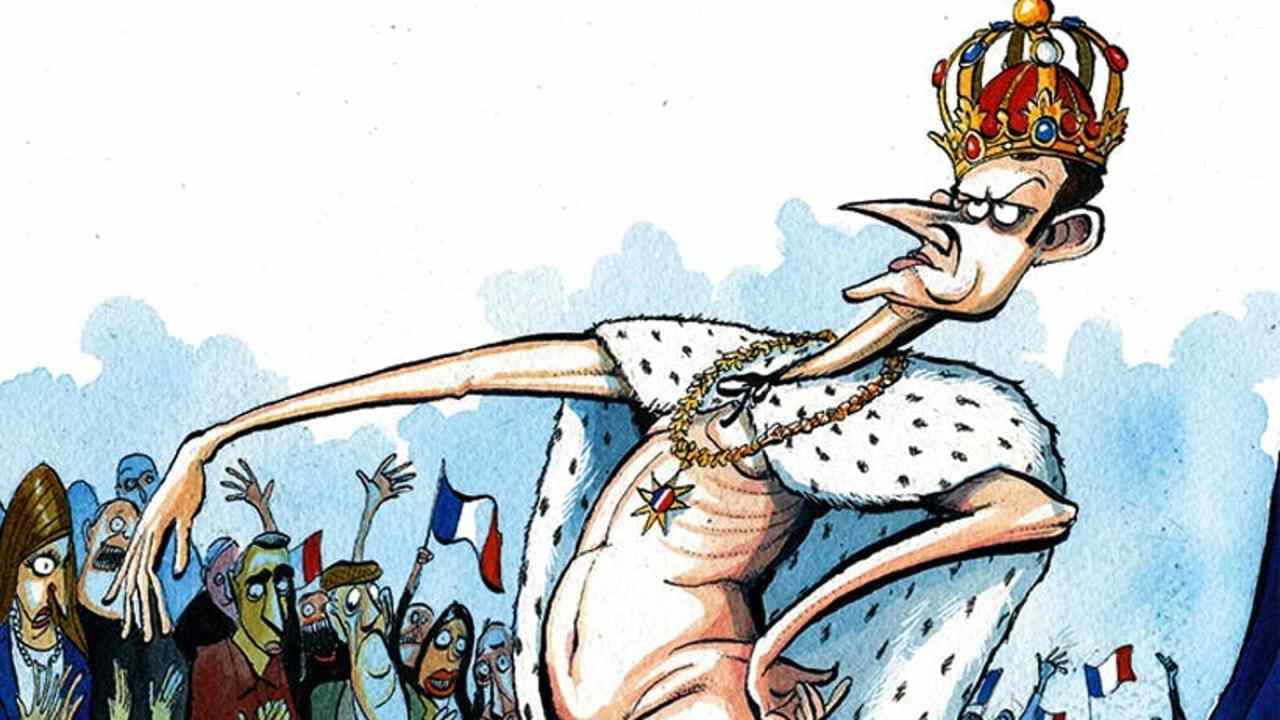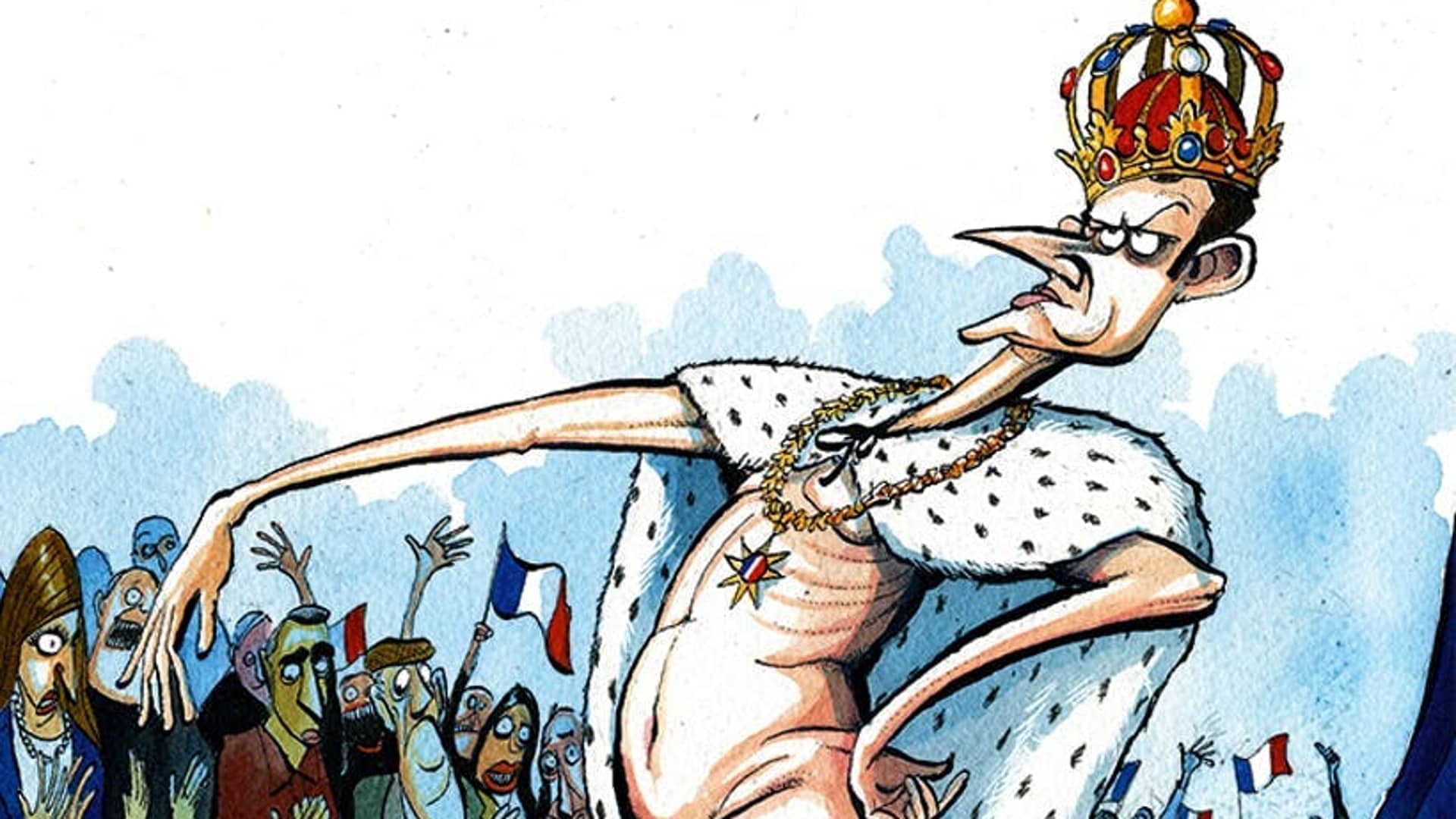It was Napoleon who declared that ‘a state has the politics of its geography’. We do well to remember that in taking stock of European international relations as we speculate on a new year and beyond. By Europe is meant the European continent, ‘from the Atlantic to the Urals’, in de Gaulle’s words. Not the 27-member European Union, which Brussels linguistically and imperialistically conflates with the 44 sovereign states that the UN defines as Europe.
Of those 44 states, four are still the European great powers, as they have been since at least 1870: Britain, Germany, France, and Russia. They are still the continent’s most populous, wealthiest (except Russia), and militarily prepared (except Germany). Over the longue durée their geostrategic positions have changed little, bar post-war Germany’s. So how might each of them evolve over the medium to long term?
The great nineteenth century French historian Jules Michelet was in the habit of opening his College de France lectures on Britain with the statement:
‘Messieurs, England is an island, now you know as much as me of her history’.
France is now more alone in managing a gently rising Germany
Through much of the nineteenth and twentieth centuries a prominent issue in British diplomacy was the dilemma of a continental versus an imperial strategy. Should Britain make a strategic commitment to intervening on the European continent or should it prioritise its world-wide interests?
Apart from the two world wars and the forty-year European communities interlude from 1973, London prioritised its global interests. After Brexit, and boosted by a vengeful European Union still intent on ensuring Brexit does not succeed, Britain is ever more forced into the ‘splendid isolation’ from the continent that was a cornerstone of her diplomacy, and deeply regretted by many European nations. Britain remains one of the world’s most powerful states, and arguably for the first time in her peacetime history the most powerful in Western Europe. The EU, famously described by the former Belgian foreign minister as ‘an economic giant, a political dwarf, and a military worm’ may come to regret its vindictive stance should severe tension or even conflict blight the European continent.
For much of the post-war era West Germany was a compliant power committed to the Western Alliance and to playing a subservient role in a French designed and controlled European community. Nobel prize-winning François Mauriac sardonically captured France’s ambivalence to Germany:
‘We love Germany so much, we are glad there are two of them.’
Since reunification German economic and political power has continued to rise and nonchalantly drift towards greater independence, much to France’s chagrin. Historian Tony Judt playfully summarised the German-French relationship as:
‘You pretend not to be powerful and we’ll pretend not to notice’.
Viewed from Paris these days Germany is seen as ever less French compliant, most recently on issues from nuclear power to a deepening energy dependence on Moscow. The one moment when Germany appeared to be heading off in an independent direction – to France’s severe consternation – was over Ostpolitik in the 1970s when she increasingly flirted with Soviet Russia. This recalled a deep French historical anxiety, that of a Russo-German rapprochement. Rather as French diplomacy misread the new Biden administration in thinking it would work hand in glove with Paris, it may be repeating the error in believing the new Scholz coalition can be moulded to French strategic interests.
The one European power with the most to lose from Britain turning its gaze from the European continent is France. Irony indeed, given Emmanuel Macron’s five-year anti-Brexit vendetta, further encouraging London’s pivot overseas. Post-Brexit France is now unable, when French interests so demand, to side with Britain against Germany to get her way. She is more alone in managing a gently rising Germany than for years.
The famed editor of Le Monde newspaper, André Fontaine, remarked in 1952, ‘France has a German policy; she has no other’. So it has been since at least 1870. Ever since the 1929 Briand Plan, European integration was the French device employed to tie down the German Gulliver. But with Britain’s departure from the EU, Germany is left in a commanding position at Brussels.
One can expect Emmanuel Macron, if re-elected, to seek further ropes to keep Gulliver down. Every time Germany appears to raise herself, France comes in with more European federalism, of which the Maastricht ploy post reunification is the most instructive. With France obsessed with declinism – notably in relation to Germany – a Paris push for greater EU integration to further restrict German sovereignty is already taking shape. Only a few weeks ago, Emmanuel Macron called for greater EU federalism. More recently, Macron and Italian prime minister Mario Draghi – former European Central Bank president – published an article in the Financial Times calling for the EU to do away with the German inspired shibboleths of its old stability pact requiring budget deficits of no more than three per cent and national debt to GDP under 60 per cent. The incoming German administration is fast learning the tactless pressure associated with Macron diplomacy. The question remains as to whether Berlin will wish to toe the French line.
That leaves Russia. Her geo-strategic moves are determinate for the European continent, but remain as Churchill once described:
‘A riddle, wrapped in a mystery, inside an enigma’.
Ironically, despite France being one of the architects of Nato in 1949 and now one of her foremost critics, that organisation remains key to the European continent’s security, the more splintered it becomes. It was, after all, its first Secretary General, Lord Ismay, who described Nato as designed to ‘keep the Russians out, the Americans in and the Germans down’. It remains to be seen, with Biden, Macron, Johnson and Scholz in control, whether it still succeeds in any of these aims.








Comments